Science Fiction

61. Kindred
Buy on Amazon"Kindred" by Octavia E. Butler is a science fiction novel that combines elements of time travel and historical fiction. The story follows Dana, an African American writer in the 1970s who inexplicably finds herself transported back in time to the antebellum South. She discovers that her time-travel episodes are linked to the life of a young white boy named Rufus Weylin. As Dana's experiences become increasingly entwined with Rufus and the harsh realities of slavery, the novel explores themes of power, race, and the complexities of history. Butler's work is acclaimed for its powerful storytelling and its exploration of the impact of slavery on both the past and the present.
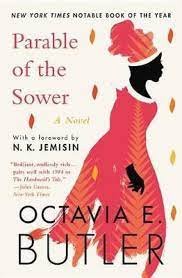
62. Parable of the Sower
Buy on Amazon"Parable of the Sower" by Octavia E. Butler is a dystopian science fiction novel set in a near-future America ravaged by societal collapse and environmental decay. The story follows Lauren Olamina, a young woman with a unique condition called hyperempathy that makes her feel others' pain. In response to the chaos around her, Lauren develops a new belief system called Earthseed, centered on adaptation and change. Butler's work explores themes of resilience, faith, and the search for meaning in a world on the brink of collapse. "Parable of the Sower" is celebrated for its thought-provoking exploration of societal issues and its compelling protagonist.
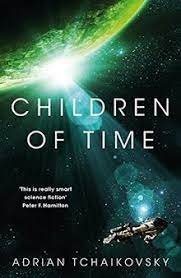
63. The Children of Time
Buy on Amazon"The Children of Time" by Adrian Tchaikovsky is a science fiction novel that explores the evolution of intelligence and civilization among spiders on a terraformed planet. After an experiment to uplift monkeys goes awry, a nanovirus inadvertently accelerates the evolution of arachnids, leading to a new and complex society. As humanity, on the brink of extinction, seeks a new home, tensions rise between humans and the evolving spiders. Tchaikovsky's work delves into themes of evolution, intelligence, and the consequences of human interference. "The Children of Time" is praised for its ambitious scope, imaginative world-building, and intricate exploration of the relationships between species and civilizations.
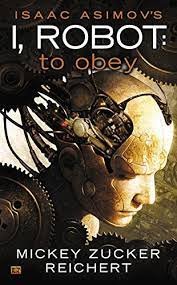
64. I, Robot
Buy on Amazon"I, Robot" by Isaac Asimov is a collection of interconnected science fiction stories exploring the interactions between humans and robots. Set within Asimov's "Three Laws of Robotics," the tales delve into ethical dilemmas, unintended consequences, and the evolving relationship between artificial intelligence and its creators. Through engaging narratives and thoughtful exploration of the potential pitfalls of advanced technology, Asimov crafts a seminal work that questions the boundaries of humanity and the responsibilities accompanying the creation of intelligent machines.
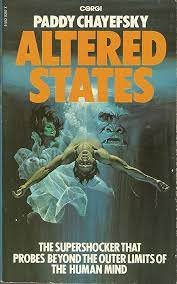
65. Altered States
Buy on Amazon"Altered States" by Paddy Chayefsky is a novel that explores the psychological and metaphysical consequences of an experimental sensory deprivation tank. Dr. Edward Jessup, a Harvard professor, becomes obsessed with the tank's mind-altering possibilities. As he undergoes increasingly extreme experiments, Jessup experiences surreal and primal transformations. Chayefsky's work delves into themes of identity, consciousness, and the limits of human understanding. The novel, adapted into a film, combines elements of science fiction and psychological drama to explore the profound impact of altered states of consciousness on the human psyche.
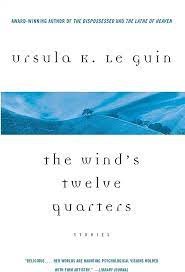
66. The Wind's Twelve Quarters
Buy on Amazon"The Wind's Twelve Quarters" is a collection of short stories by Ursula K. Le Guin. Spanning various genres, including science fiction and fantasy, the anthology showcases Le Guin's literary versatility and imaginative storytelling. The stories explore diverse worlds and characters, delving into themes of cultural diversity, gender roles, and the intricate relationships between individuals and their environments. Le Guin's work is celebrated for its literary depth, thought-provoking narratives, and its influence on speculative fiction. "The Wind's Twelve Quarters" offers a captivating journey through the literary landscapes of one of the genre's most renowned authors.
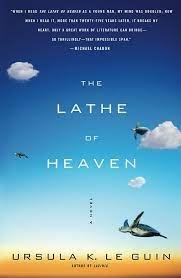
67. The Lathe of Heaven
Buy on Amazon"The Lathe of Heaven" by Ursula K. Le Guin is a science fiction novel that explores the consequences of a man's dreams altering reality. George Orr, burdened by his uncontrollable power, seeks help from a therapist, Dr. Haber, who manipulates Orr's dreams to reshape the world. However, each alteration brings unintended and often catastrophic consequences. Le Guin's work delves into themes of power, ethics, and the limitations of human agency. "The Lathe of Heaven" is celebrated for its philosophical depth, imaginative storytelling, and its exploration of the complex interplay between dreams, reality, and the ethical responsibilities that come with the ability to shape the world.
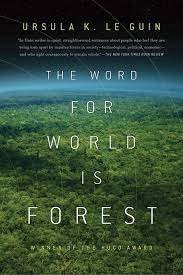
68. The Word for World is Forest
Buy on Amazon"The Word for World is Forest" by Ursula K. Le Guin is a science fiction novella set in her Hainish Cycle. The story takes place on the planet Athshe, where the indigenous people, known as the Athsheans, face exploitation and enslavement by human colonists seeking valuable resources. As the Athsheans resist, the narrative explores themes of colonialism, environmentalism, and the consequences of unchecked exploitation. Le Guin's work is renowned for its social and philosophical depth, and "The Word for World is Forest" is a powerful exploration of the ethical complexities surrounding imperialism and the impact on both oppressors and the oppressed.
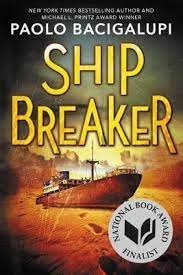
69. Ship Breaker
Buy on Amazon"Ship Breaker" by Paolo Bacigalupi is a dystopian science fiction novel set in a world where climate change has led to environmental and social collapse. The story follows Nailer, a young scavenger who works on dismantling old oil tankers to salvage valuable resources. When he discovers a shipwrecked aristocratic girl, Nailer faces moral dilemmas and the harsh realities of a divided society. Bacigalupi's work explores themes of class disparity, environmental degradation, and the resilience of the human spirit in the face of a bleak future. "Ship Breaker" is acclaimed for its gritty portrayal of a post-apocalyptic world and its social commentary on contemporary issues.
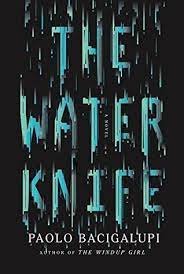
70. The Water Knife
Buy on Amazon"The Water Knife" by Paolo Bacigalupi is a near-future science fiction novel set in a Southwestern United States plagued by water scarcity and drought. The story follows characters including Angel Velasquez, a "water knife" who enforces water rights, and journalist Lucy Monroe as they navigate a world where water is more valuable than gold. Bacigalupi's work delves into themes of environmental collapse, corporate greed, and the struggle for survival in a world where access to water is a matter of life and death. "The Water Knife" is praised for its gripping narrative and its exploration of the potential consequences of climate change on society.
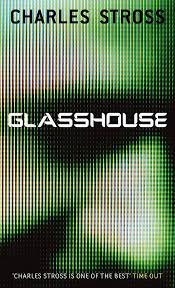
71. Glasshouse
Buy on Amazon"Glasshouse" by Charles Stross is a science fiction novel that combines elements of space opera and post-cyberpunk. The story is set in a future where individuals can undergo experimental procedures to erase and alter their memories. The protagonist, Robin, volunteers for an experiment that involves living in a reconstructed version of the past called the Glasshouse. As Robin navigates the challenges of this closed environment, the narrative explores themes of identity, memory, and the societal implications of advanced technology. Stross's work is known for its intricate world-building and its examination of the intersection between technology and humanity.
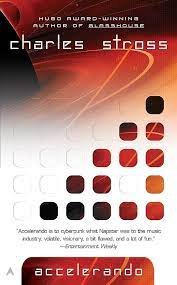
72. Accelerando
Buy on Amazon"Accelerando" by Charles Stross is a science fiction novel that explores the rapid evolution of technology and its impact on society. The narrative spans multiple generations of the Macx family, beginning with tech-savvy entrepreneur Manfred Macx and continuing through his descendants. As humanity approaches the Singularity, a hypothetical point of technological singularity, the novel delves into themes of artificial intelligence, post-humanism, and the radical transformation of human civilization. Stross's work is celebrated for its visionary take on the future, its exploration of cutting-edge concepts in computer science and artificial intelligence, and its kaleidoscopic portrayal of a rapidly changing world.
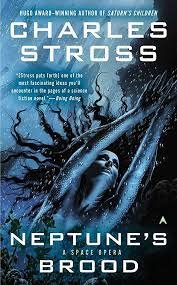
73. Neptune's Brood
Buy on Amazon"Neptune's Brood" by Charles Stross is a science fiction novel that blends space opera with economic intrigue. Set in a distant future where humanity has spread across the galaxy, the story follows Krina Alizond-114, a scholar investigating financial fraud. In a society dominated by post-human entities, including artificial intelligences and "slow" minds, Krina becomes embroiled in a complex web of financial schemes and interstellar politics. Stross's work explores themes of economics, identity, and the challenges of building a stable financial system in a vast and diverse universe. "Neptune's Brood" is praised for its inventive world-building and its engagement with economic concepts within a speculative science fiction framework.
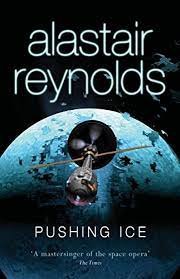
74. Pushing Ice
Buy on Amazon"Pushing Ice" by Alastair Reynolds is a science fiction novel that combines elements of space opera and hard science fiction. The story follows the crew of the spaceship Rockhopper, led by Captain Bella Lind, as they embark on a mysterious journey to pursue a massive, comet-like object named "Captain's Fancy." As the crew travels deeper into the cosmos, they encounter ancient alien technologies, time dilation, and the vastness of interstellar space. Reynolds's work is known for its complex and imaginative world-building, intricate plotting, and exploration of scientific concepts. "Pushing Ice" engages with themes of exploration, survival, and the evolution of human civilization in the cosmos.

75. Revelation Space
Buy on Amazon"Revelation Space" by Alastair Reynolds is a space opera that intricately weaves together the stories of disparate characters in a vast, technologically advanced future. The narrative follows archaeologist Dan Sylveste's pursuit of alien knowledge, Captain John Brannigan's mission to intercept a rogue spacecraft, and the looming threat of the Inhibitors, ancient extraterrestrial entities determined to halt the expansion of intelligent life. Reynolds crafts a complex and immersive tale exploring themes of cosmic mysteries, human ambition, and the consequences of encountering advanced civilizations in a universe filled with intrigue and peril.
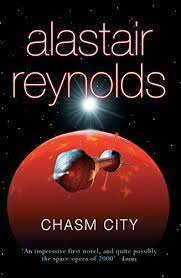
76. Chasm City
Buy on Amazon"Chasm City" by Alastair Reynolds unfolds in the Revelation Space universe as former soldier Tanner Mirabel seeks revenge in the decaying city of Chasm on the planet Yellowstone. Mirabel discovers a world of mysteries, including the enigmatic Melding Plague and the secrets hidden within Chasm's architecture. The narrative weaves themes of memory, identity, and the repercussions of the past in a richly detailed and suspenseful exploration of a city on the brink of collapse. Reynolds crafts a gripping tale that combines hard science fiction with intricate world-building.
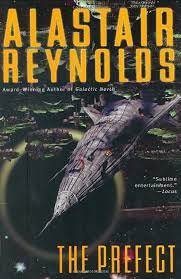
77. The Prefect
Buy on Amazon"The Prefect" by Alastair Reynolds is a science fiction novel set in the Revelation Space universe. It follows Tom Dreyfus, a law enforcement officer in the Glitter Band, a ring of ten thousand orbital habitats. When a mysterious and devastating act of sabotage occurs, Dreyfus must unravel a conspiracy that threatens the entire Glitter Band. The narrative explores themes of governance, artificial intelligence, and the challenges of maintaining order in a vast and complex system. Reynolds weaves a gripping story with intricate world-building, blending elements of space opera and hard science fiction.
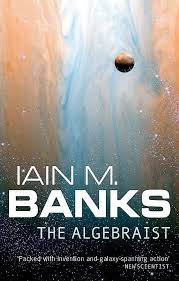
78. The Algebraist
Buy on Amazon"The Algebraist" by Iain M. Banks is a space opera that unfolds in a far-future galaxy. The narrative follows Fassin Taak, a scholar on the world of Ulubis, as he embarks on a perilous journey to uncover an ancient secret—an equation that could unlock a hidden technology. Against the backdrop of an interstellar war and political intrigue, Taak's quest delves into themes of knowledge, power, and the consequences of manipulating advanced technology. Banks crafts a sprawling and imaginative tale, combining elements of space opera with philosophical exploration, creating a richly textured and intellectually engaging science fiction experience.
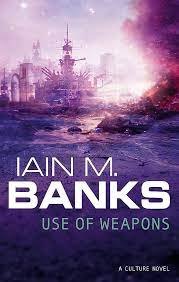
79. Use of Weapons
Buy on Amazon"Use of Weapons" by Iain M. Banks is a science fiction novel that follows the journey of Special Circumstances agent Cheradenine Zakalwe. The narrative unfolds through non-linear storytelling, revealing Zakalwe's complex past as he undertakes a mission for the Culture, a utopian interstellar civilization. As Zakalwe navigates moral dilemmas and confronts the consequences of his actions, Banks explores themes of war, identity, and the ethical implications of intervention. "Use of Weapons" is celebrated for its intricate narrative structure, philosophical depth, and Banks's skillful blending of character-driven storytelling with the grand scale of space opera.
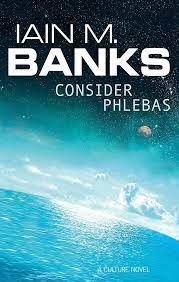
80. Consider Phlebas
Buy on Amazon"Consider Phlebas" by Iain M. Banks is the first novel in the Culture series, a space opera that introduces readers to the expansive and technologically advanced utopian civilization known as the Culture. The story follows Horza, a shape-shifting mercenary, as he navigates a galaxy on the brink of war between the Culture and the Idirans. Horza's quest to retrieve a powerful artifact becomes a journey of moral ambiguity, exploring themes of identity, loyalty, and the clash of civilizations. Banks's work is celebrated for its intricate world-building, ethical complexities, and the exploration of utopian ideals within the context of interstellar conflict.